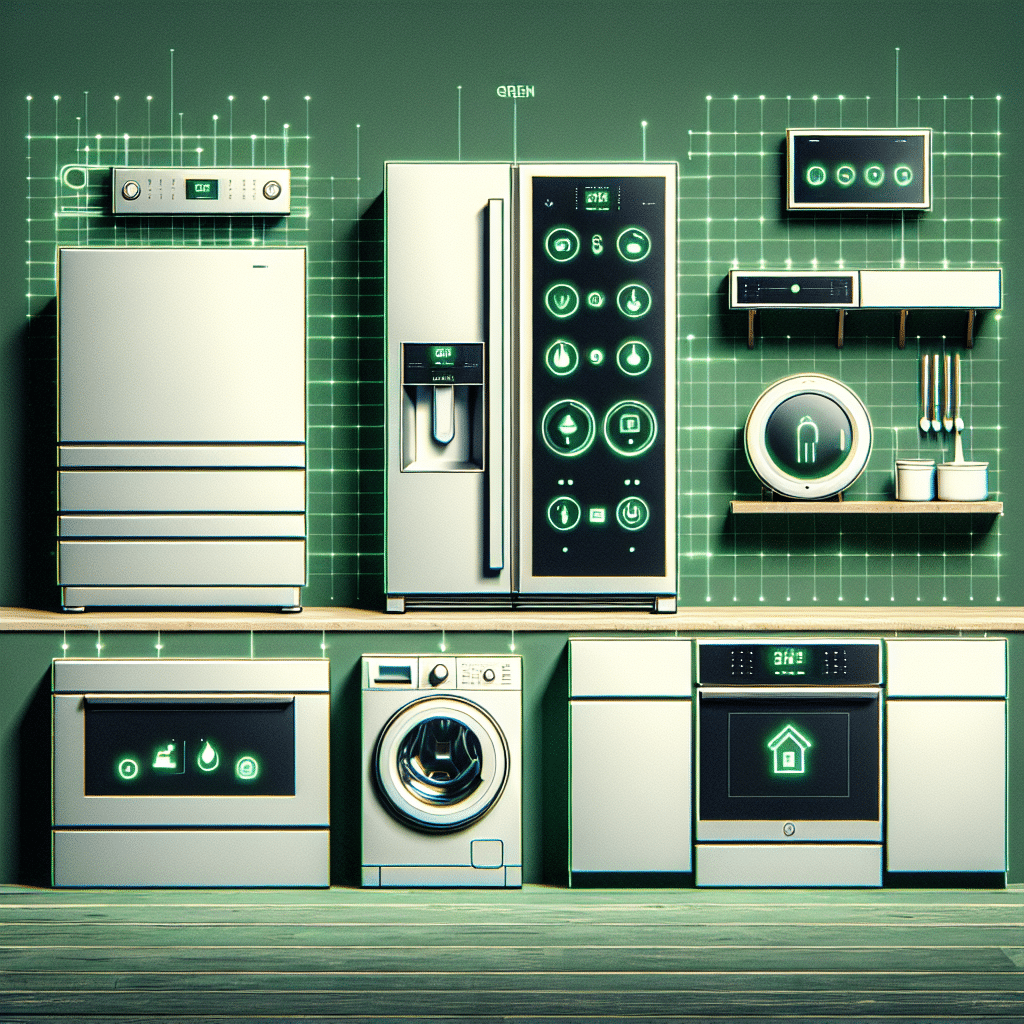The Rise of Energy-Saving Smart Appliances
In recent years, the demand for energy-saving smart appliances has soared, driven by rising energy costs and a burgeoning interest in sustainable living. These innovative devices not only enhance convenience but also significantly reduce energy consumption, making them ideal for eco-friendly homes.
What Are Energy-Saving Smart Appliances?
Energy-saving smart appliances are devices equipped with advanced technology that enables real-time monitoring, remote control, and automated functions to optimize energy use. These appliances are usually integrated into a smart home ecosystem, allowing homeowners to manage energy consumption with ease from their smartphones or tablets.
Key Features of Energy-Saving Smart Appliances
-
Remote Monitoring and Control: Many smart appliances offer the ability to be controlled from anywhere via a mobile app. This means homeowners can monitor energy consumption and adjust settings even when they are not at home.
-
Energy Efficiency Ratings: Most smart appliances come with energy labels like ENERGY STAR, indicating that they meet strict energy efficiency guidelines. These ratings help consumers choose products that use less electricity, water, or gas.
-
Adaptive Learning: Certain smart appliances include machine-learning algorithms that adapt to users’ habits. For example, smart thermostats learn when a household is likely to need heating or cooling and adjust automatically.
-
Connectivity: Smart appliances can communicate with one another and central home automation systems. This connectivity allows for a whole-home approach to energy savings, where one appliance can optimize the performance of another.
-
Usage Analytics: Many devices provide users with detailed usage stats, helping homeowners identify the most energy-hungry appliances and make more informed decisions about their usage patterns.
Essential Energy-Saving Smart Appliances for Eco-Friendly Homes
1. Smart Thermostats
Smart thermostats, like the Nest Learning Thermostat or Ecobee, adjust your home’s heating and cooling based on when you are home or away. These devices learn your schedule and preferences, significantly reducing energy waste. Some models can even utilize weather forecasts to optimize temperature settings for maximum efficiency.
2. Smart Refrigerators
Advanced smart refrigerators come equipped with touch screens, internal cameras, and connectivity features that allow you to manage grocery lists and check food inventories remotely. These appliances boast improved insulation and energy-efficient cooling systems that can save considerable energy without sacrificing performance.
3. Smart Washers and Dryers
Smart washing machines and dryers allow users to schedule laundry during off-peak hours when electricity rates are lower. They often feature moisture sensors that prevent over-drying, saving energy and extending the lifespan of clothes. Features such as load sensing and auto detergent dispensing further optimize water and detergent use.
4. Smart Dishwashers
Modern smart dishwashers can sense the load size and soil level of dishes, adjusting water and energy usage accordingly. Many also feature delayed start options, enabling you to run the dishwasher at night when energy rates are often cheaper.
5. Energy-Efficient Smart Lighting
Smart lighting systems, such as Philips Hue or LIFX, allow users to control brightness and color from anywhere. These systems can be programmed to turn off automatically when you leave a room, ensuring significant savings on electricity.
Benefits of Energy-Saving Smart Appliances
- Reduced Energy Bills: By minimizing energy consumption, homeowners can enjoy lower utility bills while contributing to a reduction in carbon footprint.
- Increased Home Value: Eco-friendly renovations, including the installation of energy-saving appliances, often increase property value, appealing to environmentally conscious buyers.
- Enhanced Convenience: With the ability to monitor and control appliances remotely, homeowners can enjoy a more convenient lifestyle without compromising on sustainability.
Tips for Choosing Energy-Saving Smart Appliances
- Check for Energy Ratings: Look for models with high energy efficiency ratings and certifications like ENERGY STAR.
- Smart Home Compatibility: Ensure that the appliances are compatible with the chosen smart home ecosystem (e.g., Google Home, Amazon Alexa).
- Read Reviews and Conduct Research: User reviews can provide insight into the appliance’s performance and usability, helping you make an informed decision.
The Role of Smart Appliances in Sustainable Living
The integration of smart appliances into everyday life represents a significant leap towards sustainable living. By employing advanced technologies and energy-efficient designs, these devices help households reduce their ecological footprint while maximizing convenience and comfort.
Future Trends in Smart Appliance Technology
As technology continues to evolve, we can expect to see even more sophisticated energy-saving smart appliances. Innovations may include:
- Integration with Renewable Energy Sources: Future appliances could further optimize energy use by connecting directly to home solar and wind energy systems, using clean energy whenever possible.
- AI and Machine Learning Enhancements: Continued advancements in AI may lead to even more personalized and efficient appliances that adapt dynamically to individual usage patterns.
- Smart Grid Connectivity: Future appliances may connect to smart grids, allowing for optimized energy usage based on real-time grid conditions and pricing.
Conclusion
Energy-saving smart appliances are essential for creating eco-friendly homes. By investing in these technologies, homeowners not only benefit financially but also contribute to a more sustainable future. The evolution of these appliances continues to create a balance between luxury, convenience, and environmental responsibility. Incorporating these devices into your home is a significant step toward reducing energy consumption and promoting a greener planet.
